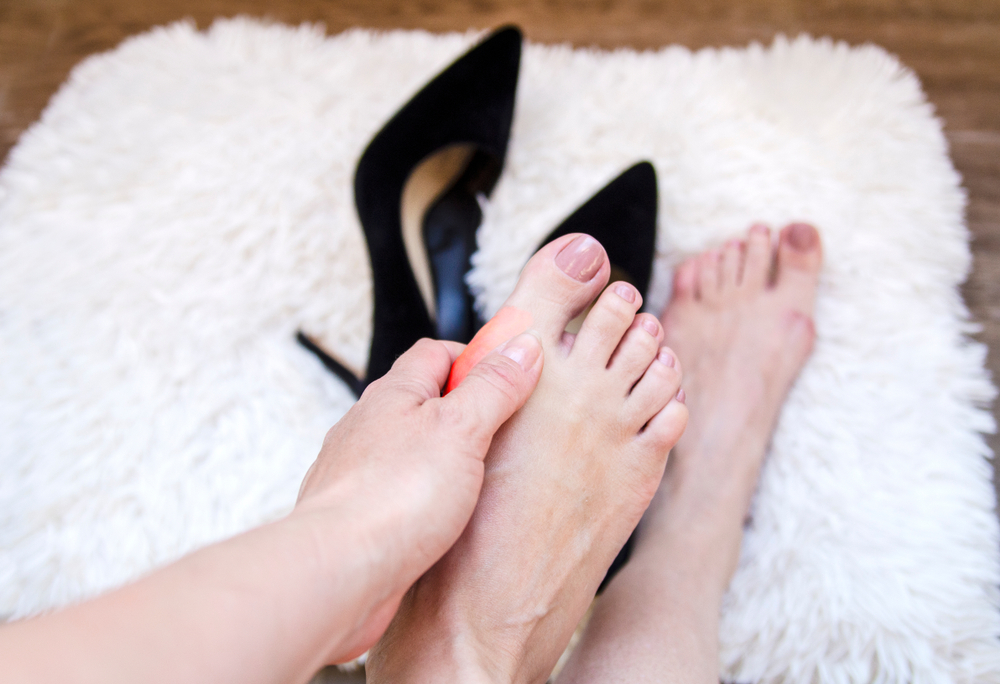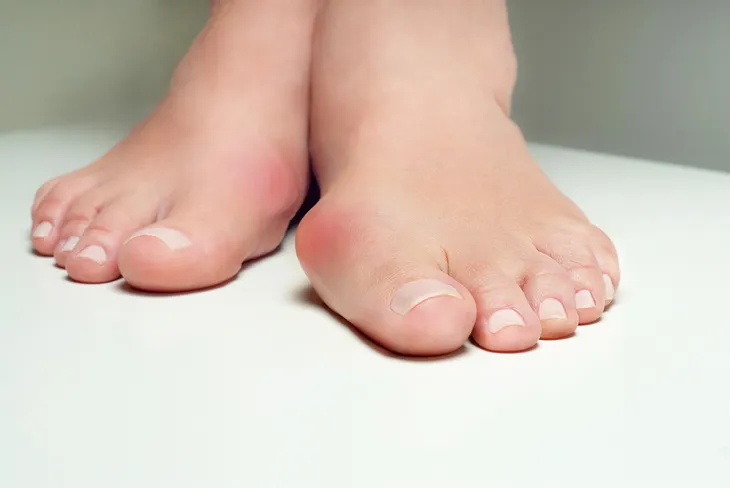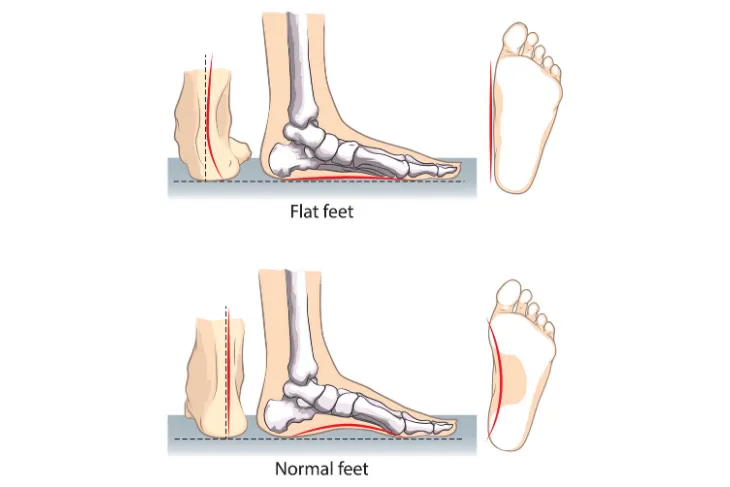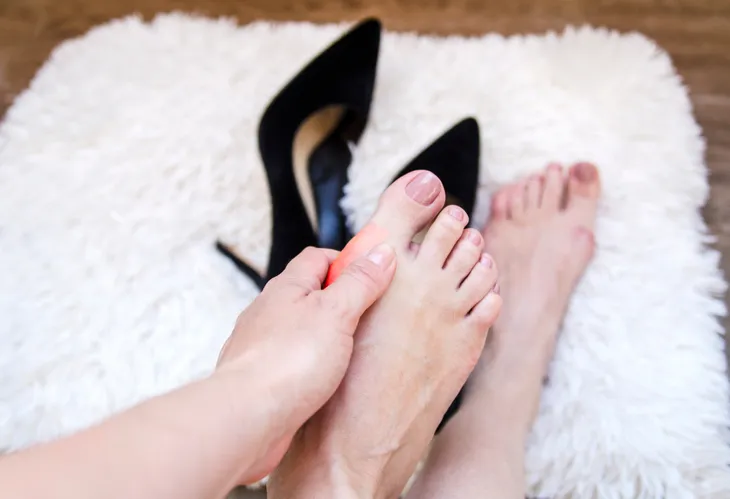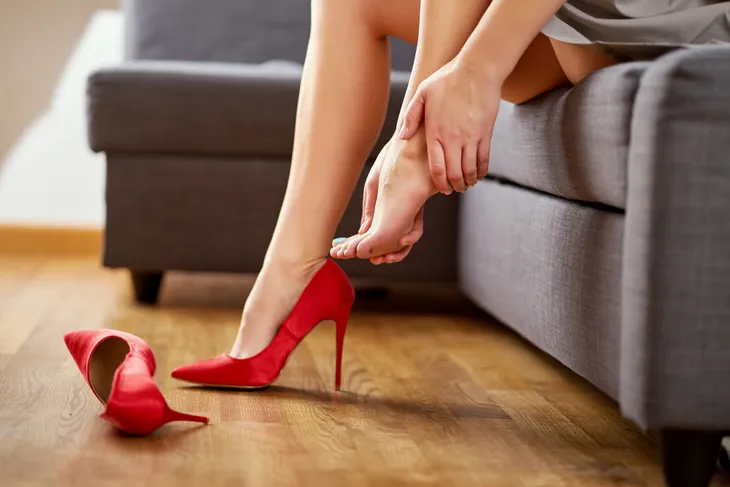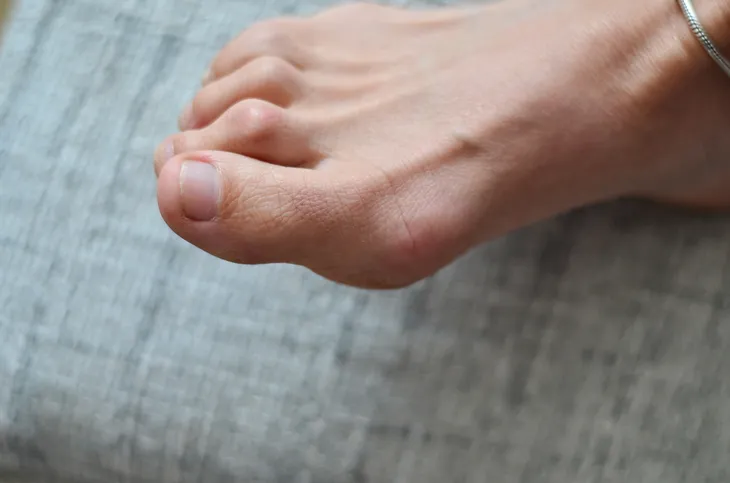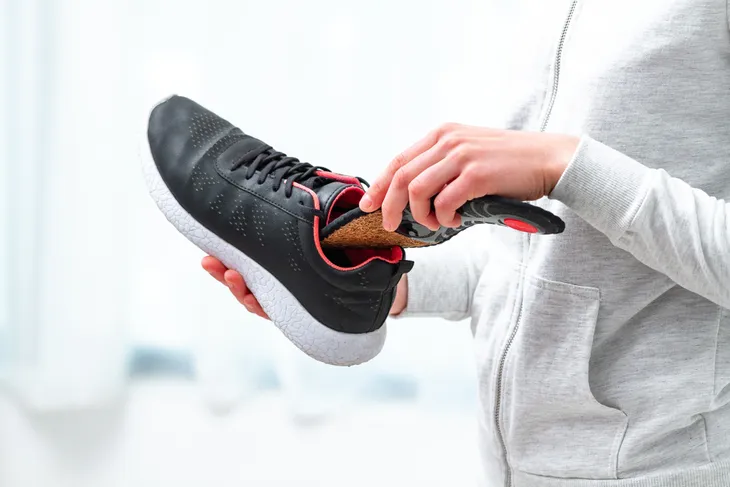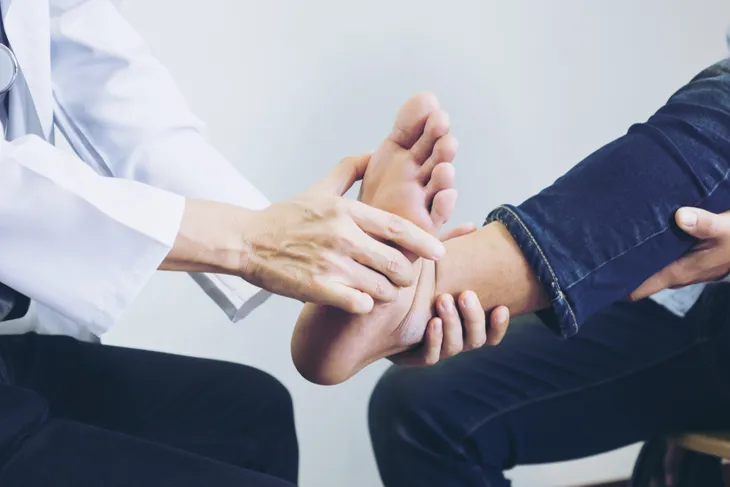Some health concerns stick out like a sore… toe? In this case, we’re talking about a bunion, which more accurately sticks out from the side of the big toe. They can be painful, as well as cause concerns from how they look. But are they treatable, and even preventable?
The good news is, yes they are! While the pain caused by bunions can be eased through medical approaches, there are other ways to address the discomfort including finding wider shoes. Whether you have bunions or are at risk of them, here is everything you should know!
What Is a Bunion on the Foot?
Medically known as hallux valgus, a bunion is a “painful, bony lump” on the outside of the big toe, notes Cleveland Clinic. It can form as a result of prolonged pressure on the joint of the big toe, causing a misalignment. They can form on one or both toes.
While bunions are often caused by improper weight-bearing, it can also be a symptom of a “progressive bone disorder,” adds Medical News Today. The condition comes from a structural issue with the bones of the feet or toes, but most commonly affects the metatarsophalangeal (MTP) joint in the big toe.
What Causes Bunions?
Medical News Today blames “overpronation” for bunions – more specifically, “having a low arch or uneven weight-bearing in the foot and tendon that makes the toe joint unstable.” However, that isn’t the only possible cause of a bunion.
For example, foot injuries can lead to bunions. So can certain types of arthritis, including rheumatoid arthritis. Conditions that can affect nerves or muscles, such as polio, can also be a culprit. The source also notes that some in the medical community believe some people inherit the bone structure that leads to bunions.
Bunion Symptoms
The most obvious symptom is a bump protruding from the side of the big toe. But there are more than visual signs that can indicate you have a bunion. Pain (that can come and go), swelling, or redness in the big toe joint are also common symptoms.
Along with pain, you might have limited movement of your big toe. Aside from the bunion, you might also notice corns/calluses as a result, which are most likely to form where the big toe rubs against the toe beside it.
Risk Factors
Healthline backs up the idea that bunions may be genetic, explaining a “faulty foot structure” is inherited. However, it also says having flat feet, “excessively flexible ligaments,” and the aforementioned abnormal bone structure put people at higher risk of developing bunions.
It notes that some experts blame improperly fitting shoes, while others believe that just makes the problem worse. On the latter note, it says too-tight shoes (or high heels) can crowd toes and put pressure on the big toe. Other possible causes can be from being on your feet too often or if you have arthritis.
Possible Complications
There are several complications you should be aware of. For starters, if you ignore the bunion the pain may become worse. You may also be at higher risk of bone spurs, which can be painful on their own. You might also develop hammertoes which is an abnormal bending of the toes adjacent to the big toe.
Meanwhile, bunions can also boost the chances of bursitis, which is a painful fluid buildup around joints. Another condition that might result from a bunion includes osteoarthritis, which can also affect the fingers and toes.
What Is the Best Way to Treat Bunions?
Healthline says there are several ways to address bunions, and most of them are not drastic. For example, it lists non-surgical approaches including getting shoes with padded soles. Ensure the shoes are the right size that allows your toes to move a bit.
You could also ask for over-the-counter arch supports for your existing shoes, it adds. You can also try taking some over-the-counter pain relievers when needed.
Meanwhile, a doctor can help by taping/padding your foot in a way that reduces pressure on the affected joint. But if these treatments don’t work and you’re still suffering, then surgery may be the next option. A “bunionectomy” is often included in surgery by removing some of the bone as well as swollen tissue.
Can Bunions Be Prevented?
Yes and no. Some people may have a genetic disposition to forming bunions due to the structure of their feet. But Medical News Today explains that finding well-fitting shoes “with a wide toe box” can help cut risk. “Avoid shoes with pointy toes and high heels.” the source adds.
For some, the problem may worsen over time and possibly warrant some of the medical treatments listed above. For others, they might just have the visual symptom of a bunion without any of the associated discomforts.
